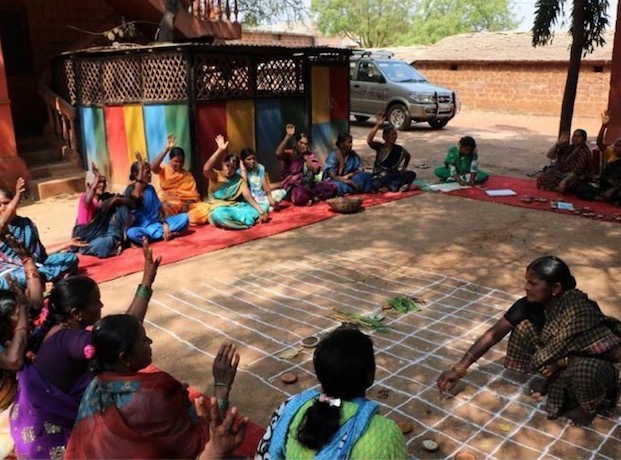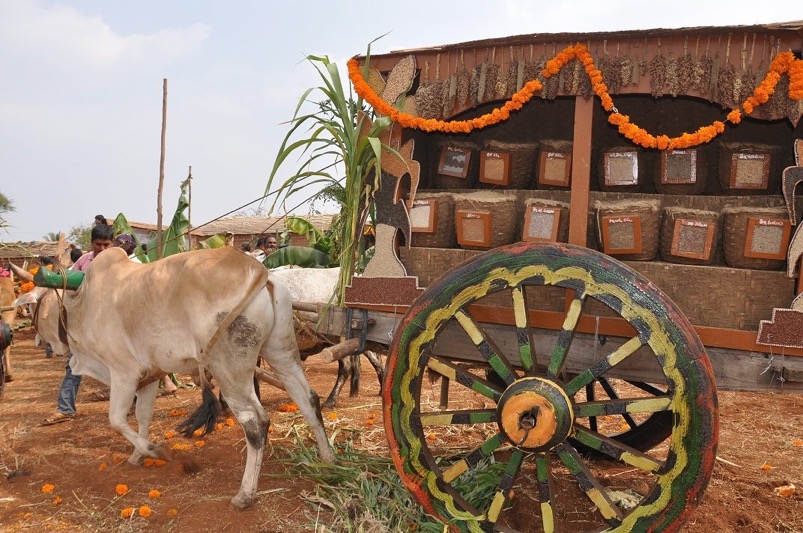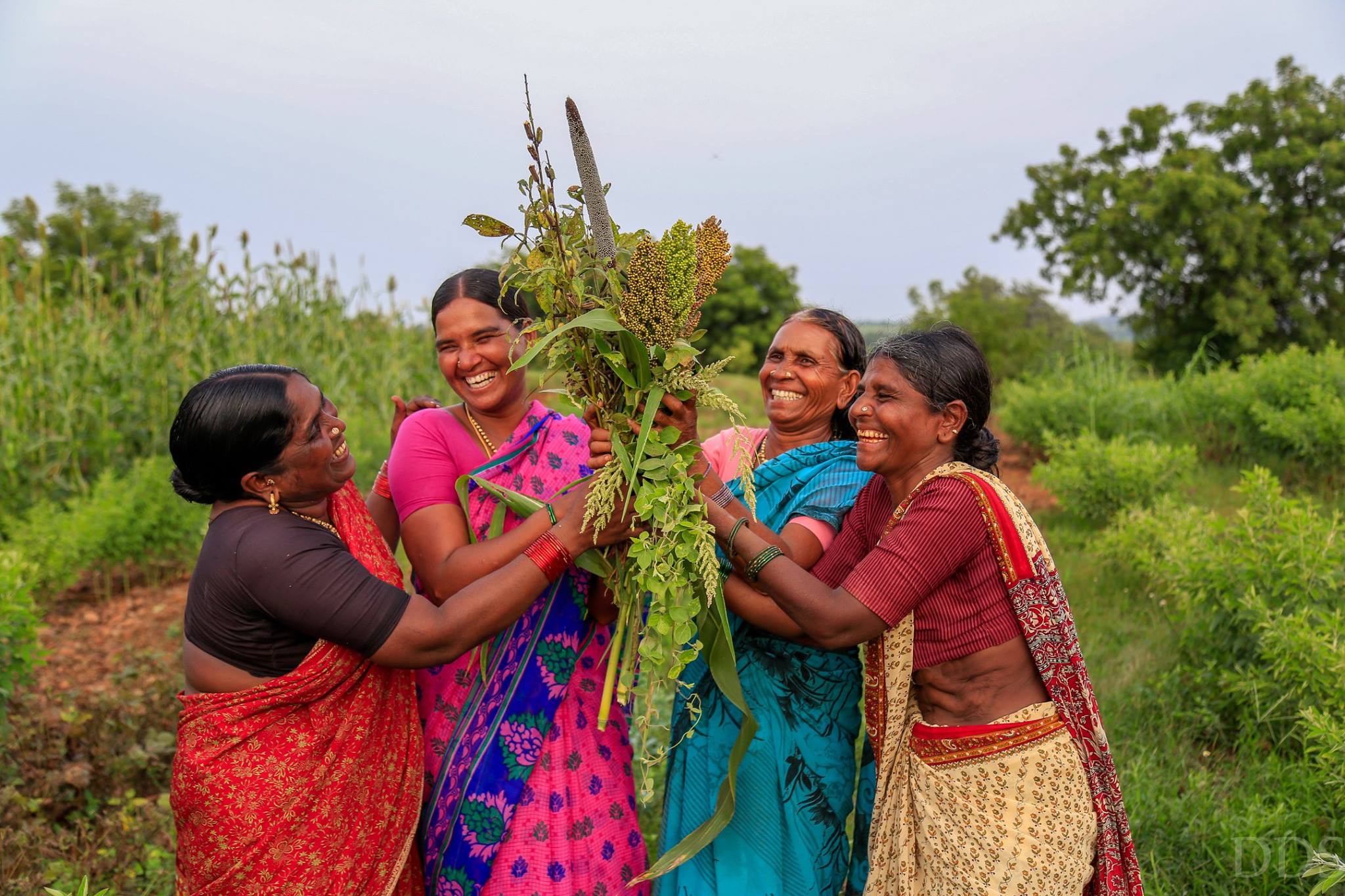Telengana, India
The women farmers of Deccan Plateau in the Zaheerabad region of India, home to 5,000 members of the NGO Deccan Development Society, have a world view that embraces biodiversity as an expression of a deep spiritual relationship between growing food and the local environment. Nothing is more fundamental and sacred to this relationship as traditional seeds, which link the past and promise a fruitful future. Their tradition is a tapestry of biodiverse farming intertwined with rituals and belief systems.
Farming is a tough life in semi-arid Zaheerabad; its soils are weathered and the rains are not reliable. It takes ingenuity and determination to grow food here. DDS works closely with creative and spiritually-minded farmers who share their skills and knowledge in more than 50 communities through sanghams – groups of women and men – who make decisions collectively about growing, consuming, and selling crops and food products. Sangham members farm 1.3 hectares on average using 20 varieties of seed for cereals, beans, vegetable, fruit, and spice crops. DDS has more than 80 varieties of crops in its seed bank. Women farmers who partner with DDS “feed the soil to feed their families and livestock.” And DDS markets their millet and millet products via Sangham Organic.
The women and men farmers of the Deccan Plateau sow traditional seeds in harmony with their local soil ecology, optimizing soil humus and a nurturing a vibrant microbial life. Their practices thwart crop failure due to poor germination or drought and the subsequent stress to farm families. Their lives and learning are rooted in the veneration of seeds as sacred to life. The heritage seeds that women farmers in their sangham use and safeguard for future crops are adapted to local growing conditions and have high rates of germination. To honor manure – Eruva, the Goddess of Wealth – the source of their fields’ fertility, every Spring women farmers of the Deccan Plateau break coconuts and sprinkle vermillion and turmeric on their compost pile, twirling a lighted lamp over it, a traditional spiritual ritual.
Nor are weeds and insects seen as pests. Weeds that compete for soil moisture during the rainy season are habitually removed, yet other weeds are used as green fodder for animals, food for people, and medicines. Certain weeds are known as recyclers of nutrients from the subsoil to the topsoil. One important weed control measure is that weed seeds are tossed into compost piles where they quickly germinate then die, rendering them powerless against future crops. Many women farmers of the Deccan Plateau share the sentiments of Ms. Bidakanne Sammamma, a member of the DDS executive board, who points out: “We have a strong and deep relationship with our cattle on our farms, and all animals for that matter, including birds who eat our cereals, which we don’t mind, and insects whom we have no right to kill. Innovation means marching forward to traditions. It means having multiple securities, which is the reason our farms are so biologically diverse. It’s how we farm, it works well for us.”
Return to the November 2017 Newsletter Index


